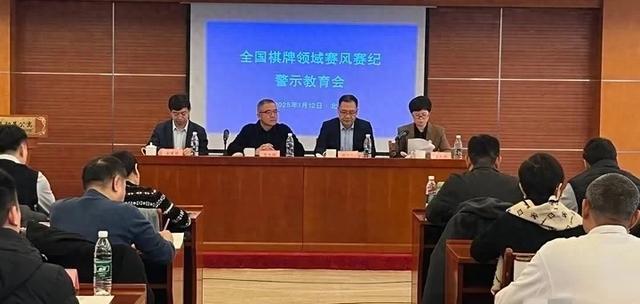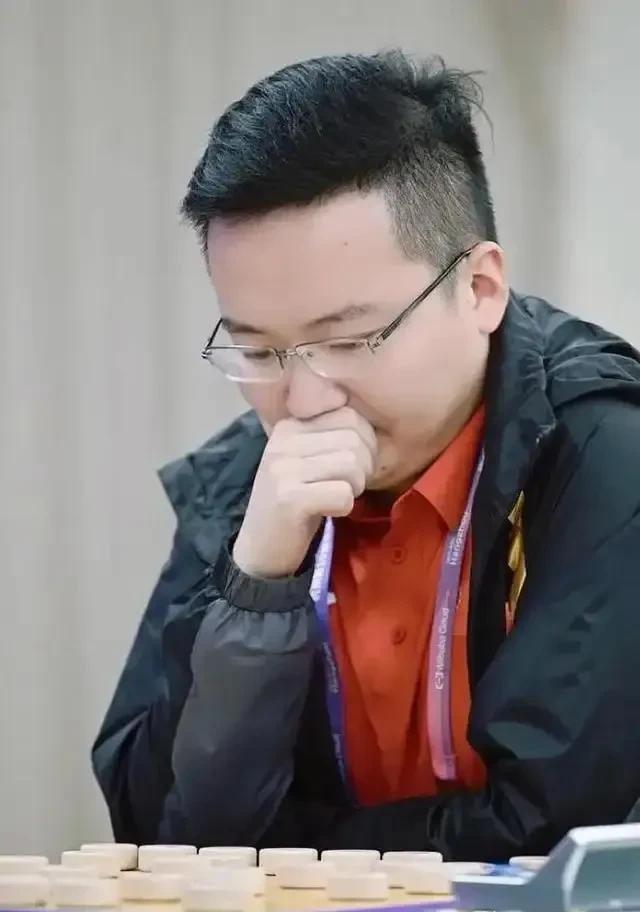China's Chess Army Wiped Out, Brazenly Carrying Cash for Direct Transactions, Coaches Leading Teams to Raise Funds for Buying and Selling
In a sweeping crackdown, nearly the entire contingent of Chinese chess players has been penalized, with 41 individuals sanctioned for match-fixing through the buying and selling of games. Among them, the top three ranked players in the nation—Wang Tianyi, Zheng Weitong, and Zheng Xin—have all received lifetime bans.

Eighteen out of the top 32 players in the country have been punished, which might lead to difficulties in future competitions against Vietnam. It was previously thought that the Chinese national football team was plagued by corruption, but it appears that the world of Chinese chess is even darker.
On January 12th, the Chinese Chess Association announced the results of its investigation into the "recording incident," imposing lifetime bans and revoking technical titles from Zhao Xinxin, Wang Yang, and Zheng Weitong. They are now barred from participating in any chess events or activities organized or authorized by the Chinese Chess Association and its member units. Including the additional 38 individuals disciplined and the previously lifetime-banned Wang Tianyi and Wang Yuefei, a significant portion of China's male chess scene has been dismantled.

Zhao Xinxin, Wang Yang, and Zheng Weitong were once the faces of Chinese chess. Representing China at the Hangzhou Asian Games, Zheng Weitong even clinched the historic 200th gold medal for the Chinese sports delegation. After his victory, I interviewed Zheng Weitong late into the night, finishing around 1 a.m. He mentioned that Chinese chess had few opportunities to be included in the Asian Games or other international comprehensive sporting events, lacking a platform for society to understand and pay attention to the sport. He hoped that their performance at the Asian Games would ignite public enthusiasm for chess. Now, both those familiar and unfamiliar with chess have become aware of the game due to this scandal.
The National Card Game Field Style and Discipline Warning Education Conference on January 12th reported on the investigation into the "recording incident" in chess, announcing disciplinary measures against 41 individuals, including lifetime bans for Zhao Xinxin, Wang Yang, and Zheng Weitong.

In April 2023, an audio recording surfaced online about Grandmaster Wang Tianyi's involvement in buying and selling chess games, prompting police intervention. However, it wasn't until September 19th, 2024, that the Chinese Chess Association announced the initial punishment results for the "recording incident," imposing lifetime bans on Wang Tianyi and Wang Yuefei.
This level of punishment did not dispel industry doubts, as reports continued to surface about leaders condoning the practice of buying and selling games. Consequently, there was a major reshuffle in the leadership of the Card Game Center, with relevant leaders being reassigned.

The new leadership cooperated with relevant departments to intensify investigations, resulting in the current round of penalties against 41 individuals. Three received lifetime bans, 34 were banned for several years, and four others were given critical notices for lesser offenses.
Rumors of buying and selling games in the chess industry have long persisted, and the "recording incident" has brought these speculations to light. The investigation revealed that such practices have existed for over a decade, from 2012 to 2023.

What began as "courtesy games" and "unspoken agreement games" gradually evolved into outright buying and selling, transforming from individual players into interest groups, with dedicated brokers emerging for these transactions. Most athletes discussed game outcomes and amounts during events, either in person or over the phone.
Some individuals even brought large sums of cash to the competition area for transactions or used relatives' accounts, making their actions quite covert. According to official sources, the main reasons athletes participate in buying and selling games are to advance in rank, divide prize money privately, and increase their ranking points.
Some athletes, in pursuit of the title of Grandmaster, arranged game results in advance with multiple opponents during national individual competitions and negotiated prices. Others sought to advance to the rank of athlete through intermediaries, bribing teammates and opponents to participate in national team competitions in a freeloading manner to gain promotion qualifications.
Some athletes also serve as coaches, acting as intermediaries and actively engaging in discussions about buying and selling games. Some coaches, for the sake of team performance, lead the whole team to pool resources and participate in buying and selling games. Problems in the chess industry have persisted for many years, and with the punishment of 41 athletes this time, it is believed that relevant leaders may also bear corresponding responsibilities in the aftermath.
While the new leadership of the Card Game Center is actively cooperating with investigations by relevant departments, they also established a special task force for rectifying the conduct and discipline of the chess industry between September and December 2024, conducting self-examination and correction within the industry, and all related personnel have returned the ill-gotten gains.
Images are sourced from the internet and will be deleted upon infringement.